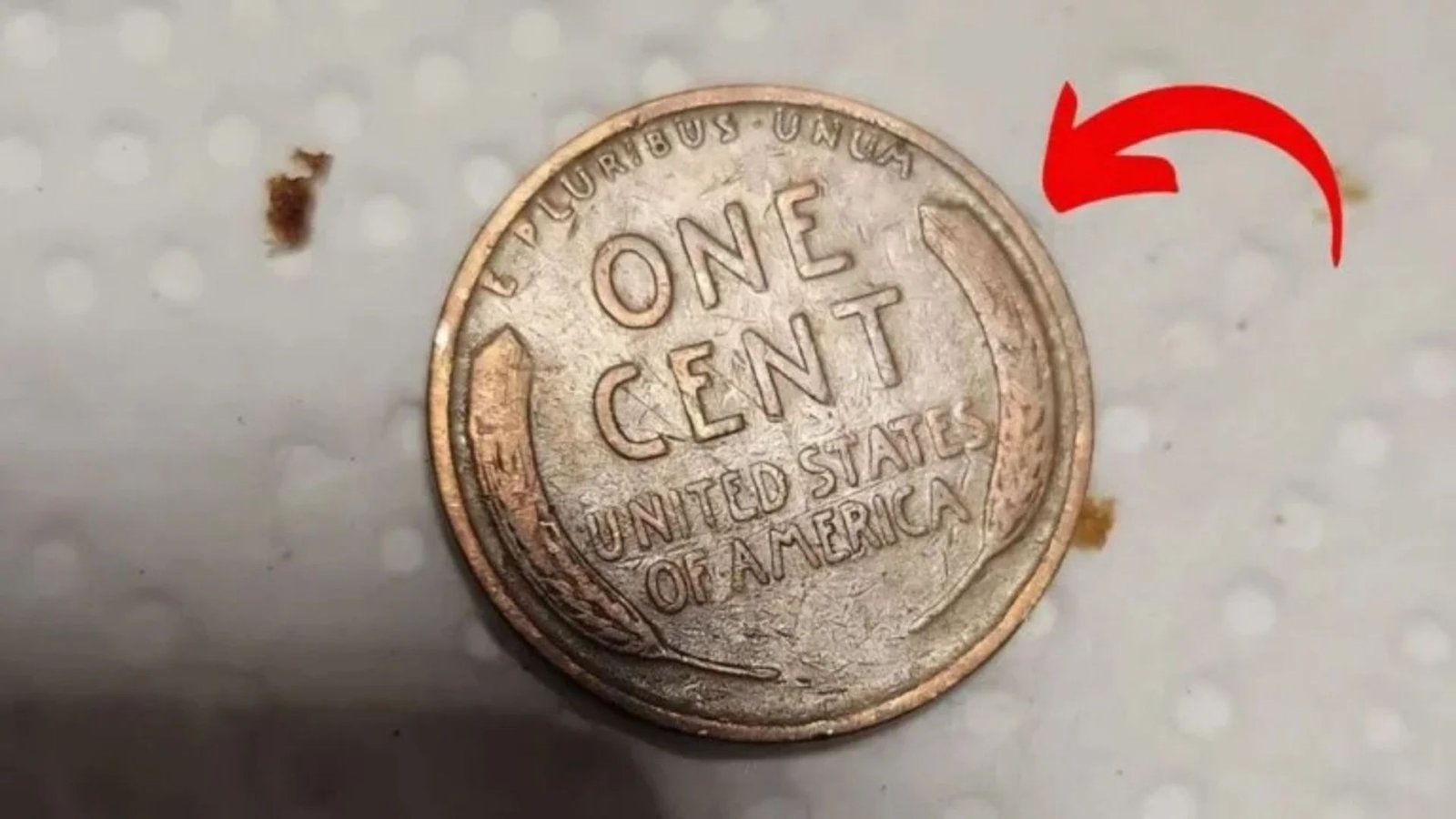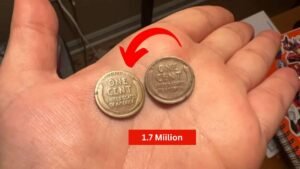Imagine rummaging through your loose change and spotting a simple penny that could fetch $519,000 at auction. Sounds like a dream? For some lucky collectors, it’s reality. The rare Lincoln Wheat Penny has captivated numismatists for decades with its history and sky-high values. In this post, you’ll learn about this elusive coin, why it’s so valuable, and how to check if you own one. Stick around – you might just strike it rich!
What Is the Rare Lincoln Wheat Penny?
The Lincoln Wheat Penny is a classic U.S. coin minted from 1909 to 1958. It features Abraham Lincoln on the front and wheat stalks on the back – hence the name.
But the star here is the ultra-rare 1943 Bronze version. Most 1943 pennies are steel due to wartime shortages, but a handful were struck in bronze by mistake. These error coins are numismatic gold.
The History and Origin of the Lincoln Wheat Penny
Designed by Victor David Brenner, the Lincoln Wheat Penny debuted in 1909 to honor Lincoln’s 100th birthday. It replaced the Indian Head Penny and became an instant hit.
During World War II, copper was needed for ammo, so 1943 pennies switched to zinc-coated steel. A few bronze blanks slipped through, creating the rarest variants. Only about 20 are known today.
Why This Rare Coin Is So Valuable Today
In today’s market, rare coins like the 1943 Bronze Lincoln Wheat Penny command huge prices due to scarcity and demand from collectors.
One example sold for $504,000, close to our $519K spotlight, while top grades hit over $1 million. Inflation and interest in numismatics drive values up, making it a smart investment.
How to Engage With and Benefit From Collecting Rare Coins
Start by sifting through your change or visiting coin shows. Join numismatic clubs for tips and trades.
Collecting rare coins builds knowledge, connects you with hobbyists, and could yield profits. Sell through auctions or dealers for cash – but get appraisals first.
Notable Facts, Statistics, and Records
Did you know? The record for a 1943 Bronze Penny is $1.7 million in 2010. Other key dates include the 1909-S VDB at up to $168,000.
Here’s a table of top valuable Lincoln Wheat Pennies:
| Coin Variant | Mintage | Average Value (MS Grade) | Record Sale |
|---|---|---|---|
| 1943 Bronze | ~20 known | $400,000+ | $1.7M |
| 1909-S VDB | 484,000 | $100,000+ | $168,000 |
| 1914-D | 1,193,000 | $200,000+ | $373,750 |
| 1922 No D | Unknown | $50,000+ | $67,000 |
| 1955 Doubled Die | Unknown | $1,000+ | $124,000 |
Another table comparing 1943 Steel vs. Bronze:
| Feature | 1943 Steel Penny | 1943 Bronze Penny |
|---|---|---|
| Material | Zinc-coated steel | Bronze (copper) |
| Weight | 2.7 grams | 3.11 grams |
| Magnetic? | Yes | No |
| Color | Silver-gray | Reddish-brown |
| Value | $0.10–$0.50 | $400,000–$1M+ |
| Rarity | Common (over 1B minted) | Extremely rare (~20 known) |
Expert Tips for Identifying Valuable Wheat Pennies
Use a magnet: Real bronze won’t stick. Check the date and mint mark (D for Denver, S for San Francisco).
Look for errors like doubled dies. Get it graded by PCGS or NGC for authenticity. Store in holders to preserve condition.
Frequently Asked Questions (FAQs)
What makes the 1943 Bronze Penny so rare?
Wartime production errors – only a few bronze ones escaped the steel switch.
How many 1943 Bronze Pennies exist?
About 15-20 confirmed, mostly in private collections.
Is my wheat penny valuable?
Key dates like 1943 Bronze or 1909-S can be. Check condition and rarity.
Where can I sell a rare coin?
Reputable dealers, auctions like Heritage, or online platforms.
Are all wheat pennies worth money?
No, common ones are $0.02–$0.10, but rares soar in value.
Conclusion
In wrapping up, the rare Lincoln Wheat Penny isn’t just pocket change – it’s a piece of history that could boost your bank account. Whether you’re a numismatic newbie or seasoned collector, start hunting today. Share this with friends, check your coins, and dive into more rare coin stories. Who knows? Your next find might be worth $519K!




